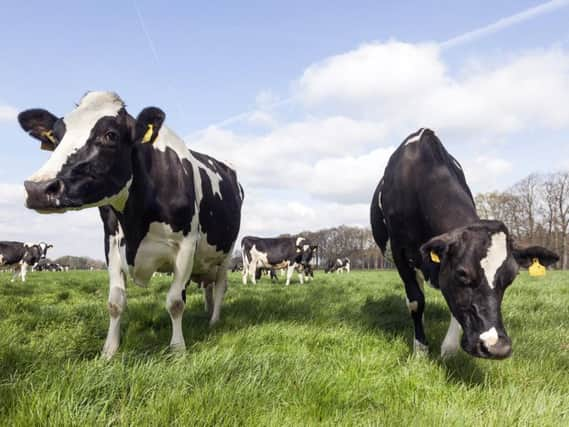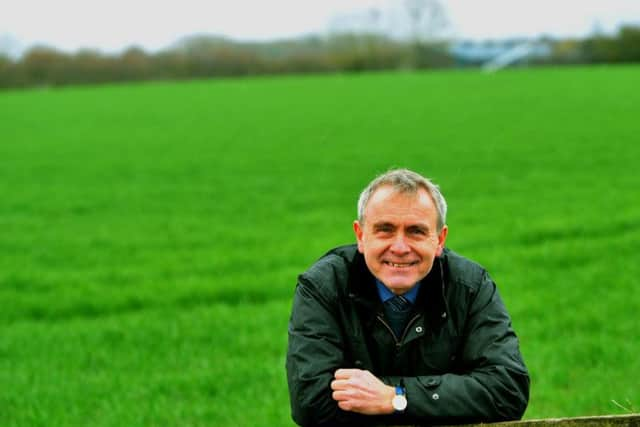Farming Minister Robert Goodwill backs role of grazing livestock in climate change battle
This article contains affiliate links. We may earn a small commission on items purchased through this article, but that does not affect our editorial judgement.


The Government’s chief advisory committee on climate change has recommended people eat less meat as part of sweeping lifestyle and societal changes to cut emissions to net zero by 2050.
While Robert Goodwill, who is also the Conservative MP for Whitby and Scarborough, believes livestock production must become more sustainable, he said there are simply no agricultural alternatives to grazing that are suited to rough upland terrain.
Advertisement
Hide AdAdvertisement
Hide AdThe Defra Minister, whose family has farmed on the Castle Howard estate since 1850, suggested the Government will help British agriculture hit its own net zero carbon target via the Environmental Land Management Scheme that it has proposed.


Under the scheme, which is intended to pay support money to farmers for delivering “public goods”, farmers could get income for carbon capture, he said.
The Minister, speaking from Defra’s London headquarters following 10 days of climate change protests in the capital by the Extinction Rebellion group, said: “Whilst there’s some activities that the climate change protesters were saying we should stop doing, like flying in aeroplanes quite so much, no one suggested people should stop eating.
“There are a lot of people who might have a different agenda in terms of reducing the demand for meat which is consumed (but)... in my part of North Yorkshire we have a lot of land that is not suited to growing aubergines or even wheat and barley.
Advertisement
Hide AdAdvertisement
Hide Ad"The uplands of our country are well suited for producing good quality beef and lamb. If we want to manage the uplands in a sustainable way to deliver the public good that people see, part of that is using grazing livestock.
“We need to look at, for example, how we can feed cattle in a way that produces less methane... how we can make livestock production more sustainable, but actually using our uplands and using grazing as part of rotational farming is part of the solution and not part of the problem in my view,” Mr Goodwill said.
A goal of the National Farmers’ Union is for British agriculture to achieve net zero by 2040, and Mr Goodwill said: “Climate change is an issue we need to face up to and in every single sector of the economy, not least agriculture, we need to play our part in reducing carbon emissions.”
'Communities need protection'
Current trends suggest consumers will choose to eat less red meat and dairy but there can be “significant opportunities” for farmers in the UK’s push to hit zero-carbon by 2050, one rural lobbyist said.
Advertisement
Hide AdAdvertisement
Hide Ad“The planting of billions of trees across the country, growing of crops for energy and natural habitat restoration will all play a vital role,” said Mark Bridgman, deputy president of the Country Land and Business Association (CLA), who also cautioned that changes in agricultural practices must not come “to the detriment of rural communities and the rural economy”.